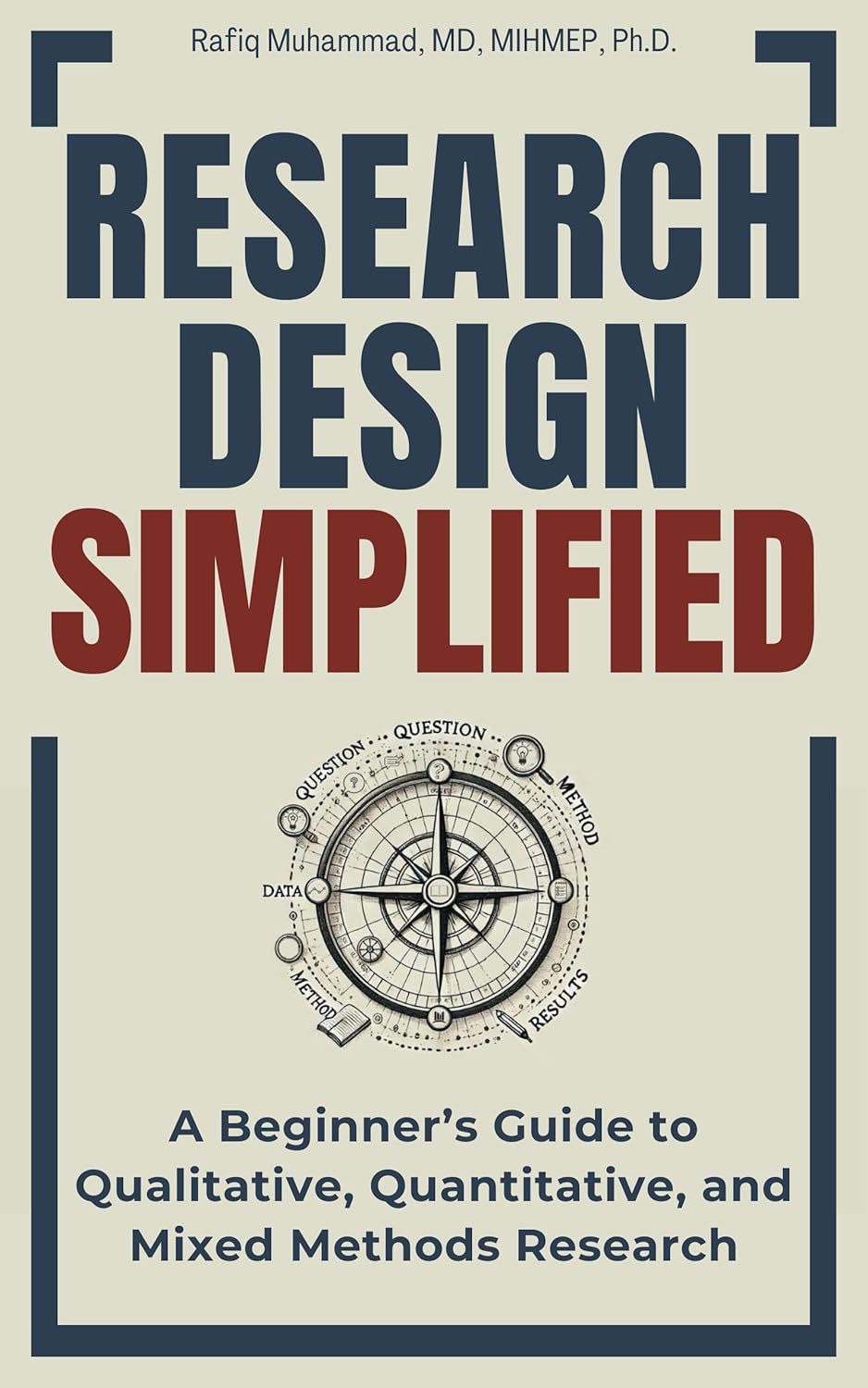
Master Your Research: Practical guides for every stage of your academic journey
Navigate research design, literature reviews, scientific writing, proposal development and AI-powered workflows with the nine-book series by Dr. Rafiq Muhammad. Whether you are starting your PhD or polishing your manuscript, the step-by-step guides simplify complex tasks and accelerate progress. Explore the series below and unlock proven frameworks, templates and ethical AI strategies to elevate your research.
Formats: Kindle, Hardcover, Paperback · Secure checkout on Amazon
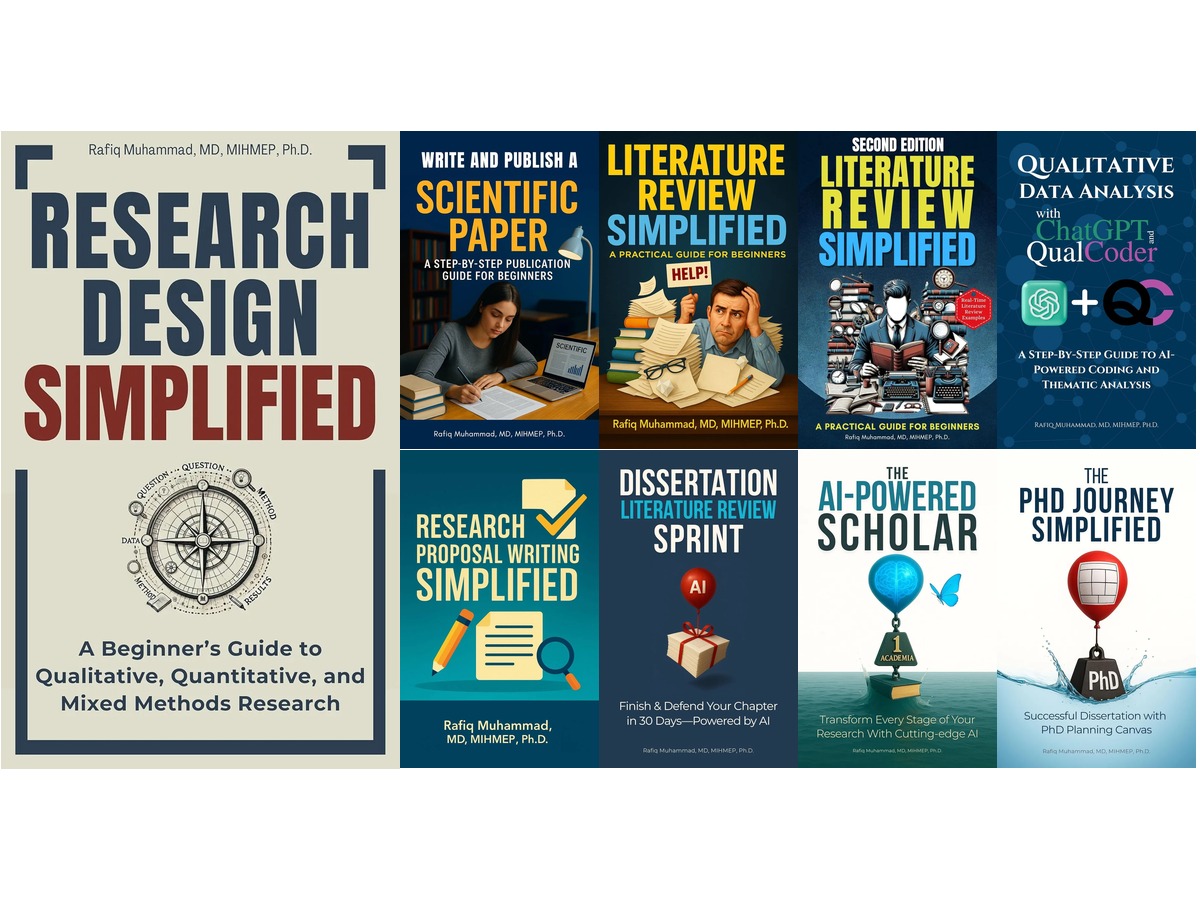
Books in the Series

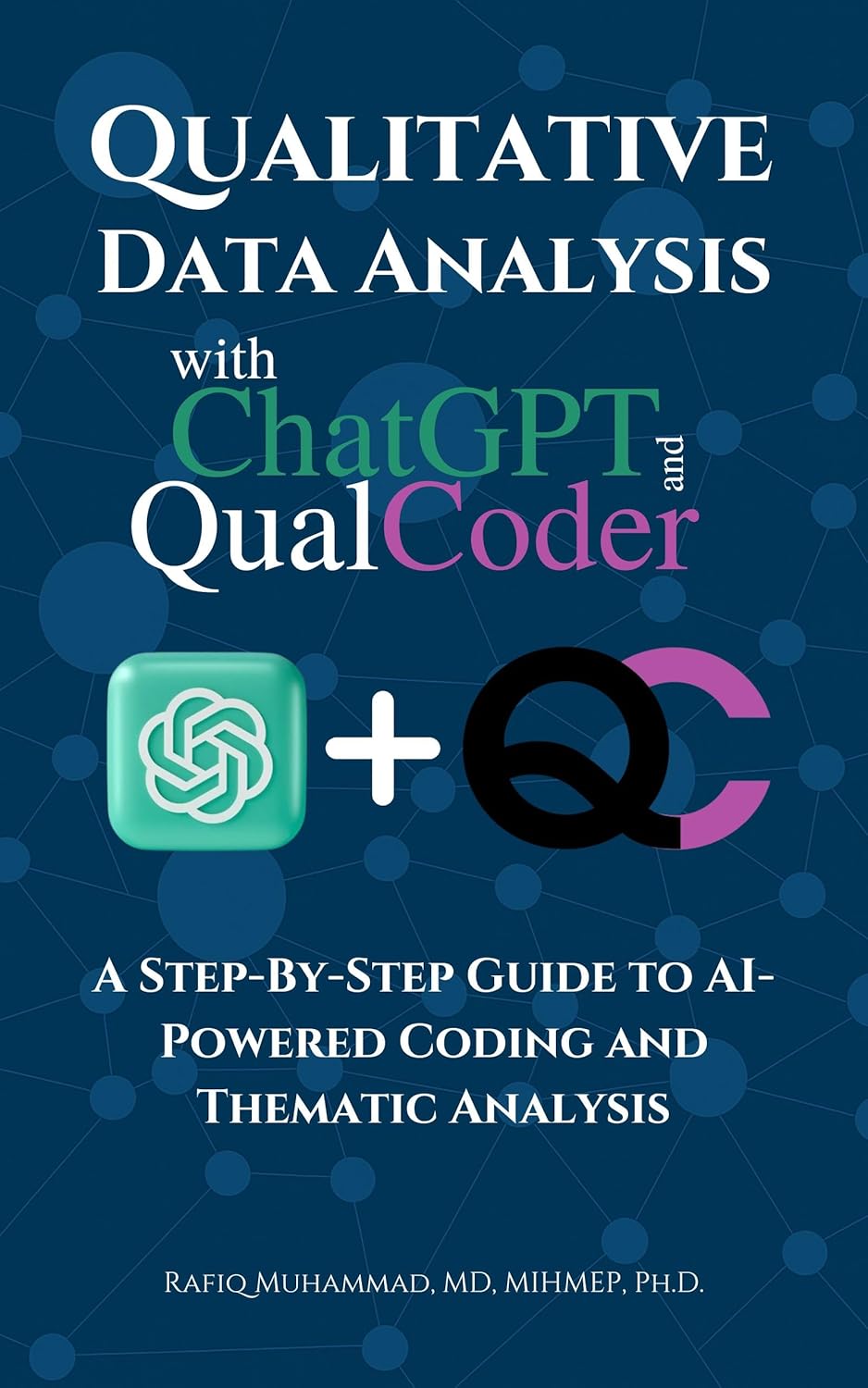
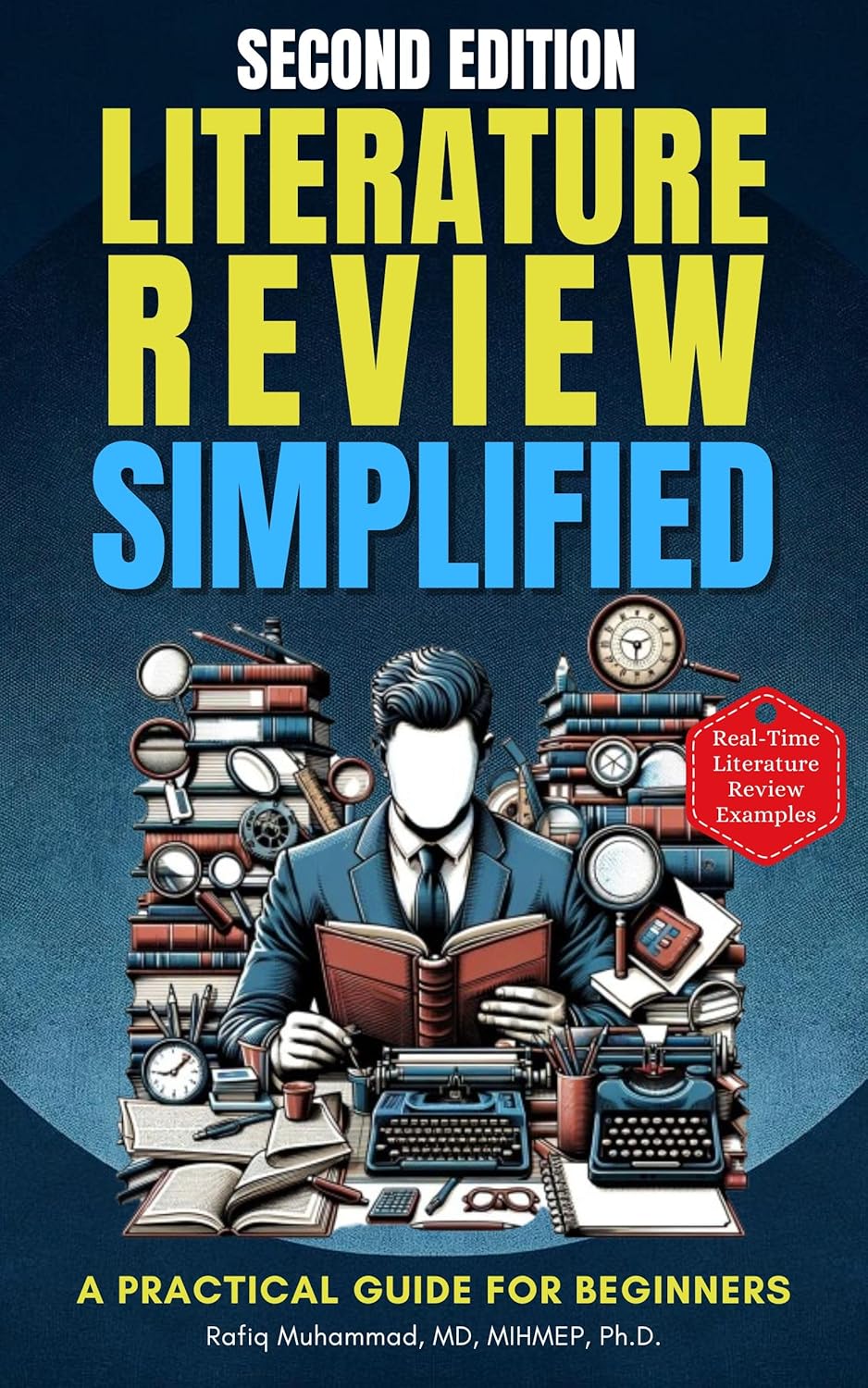
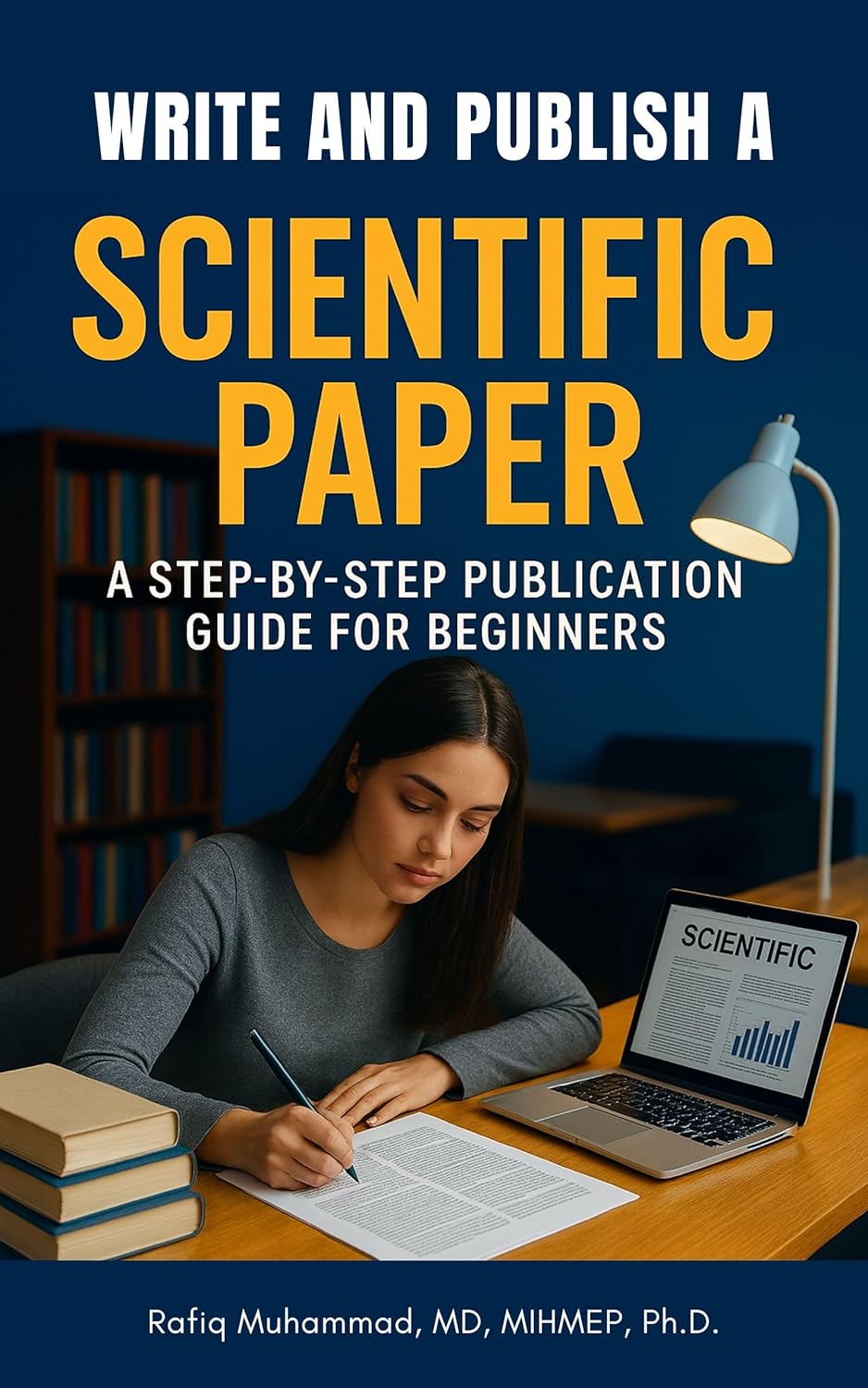
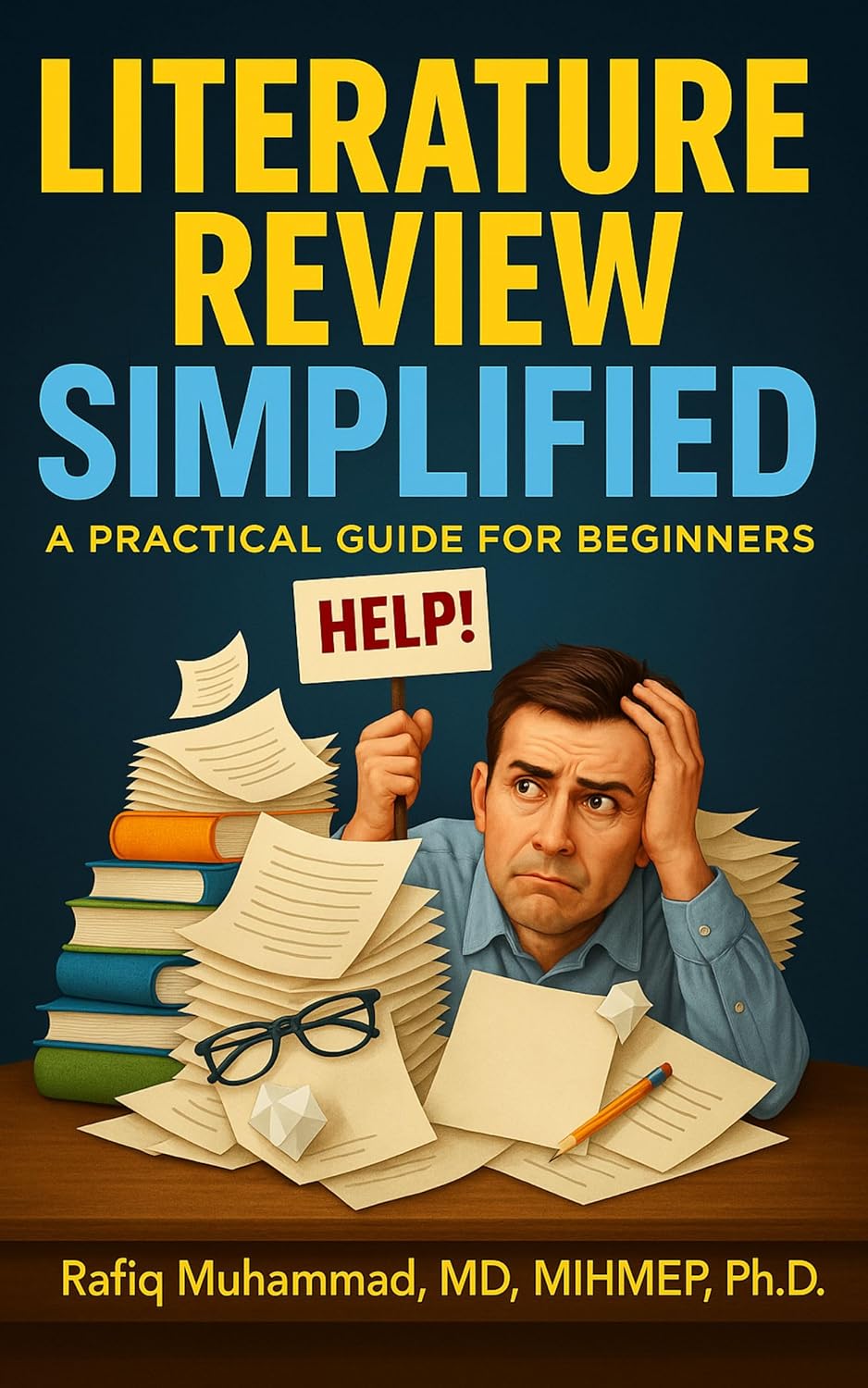
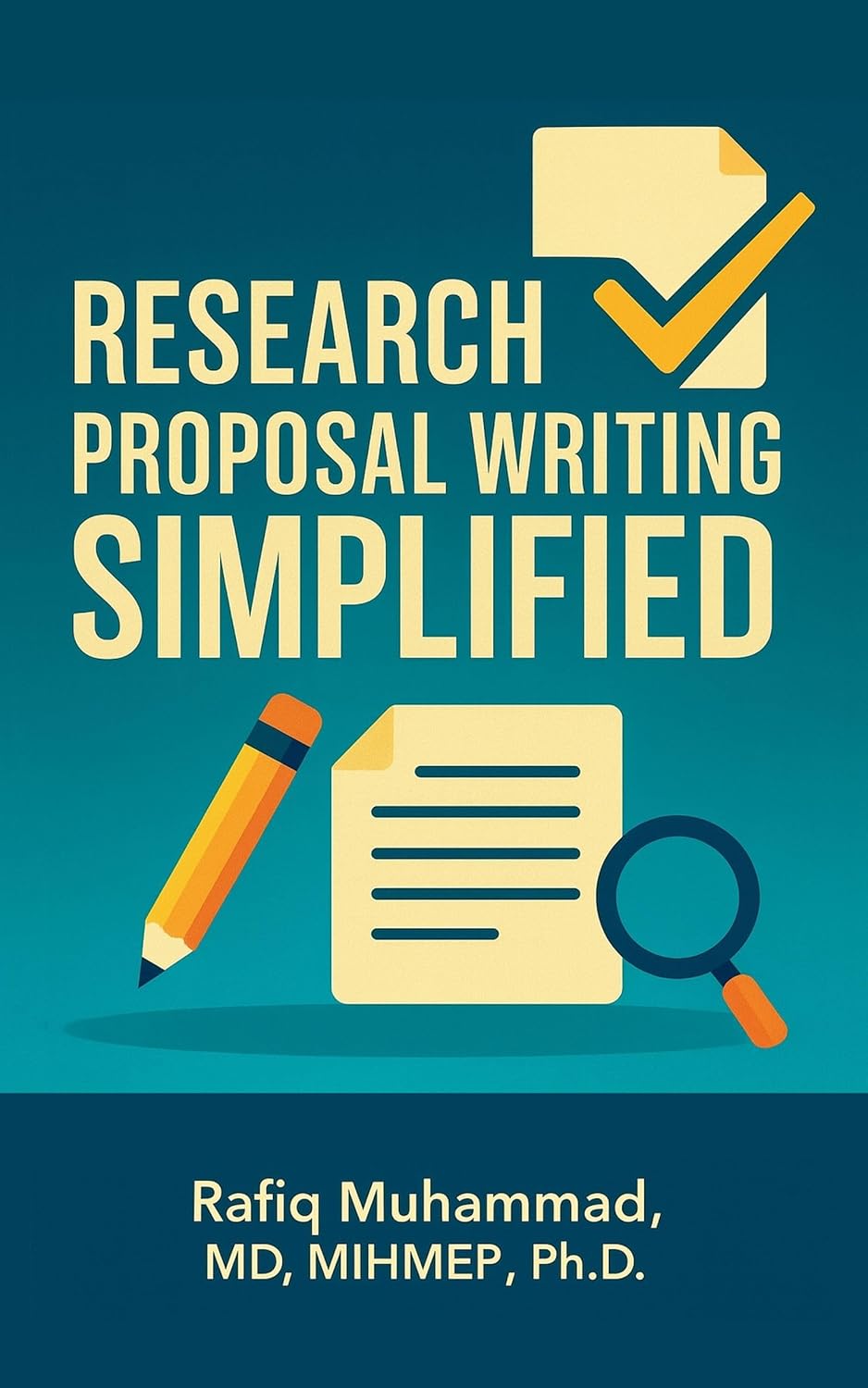
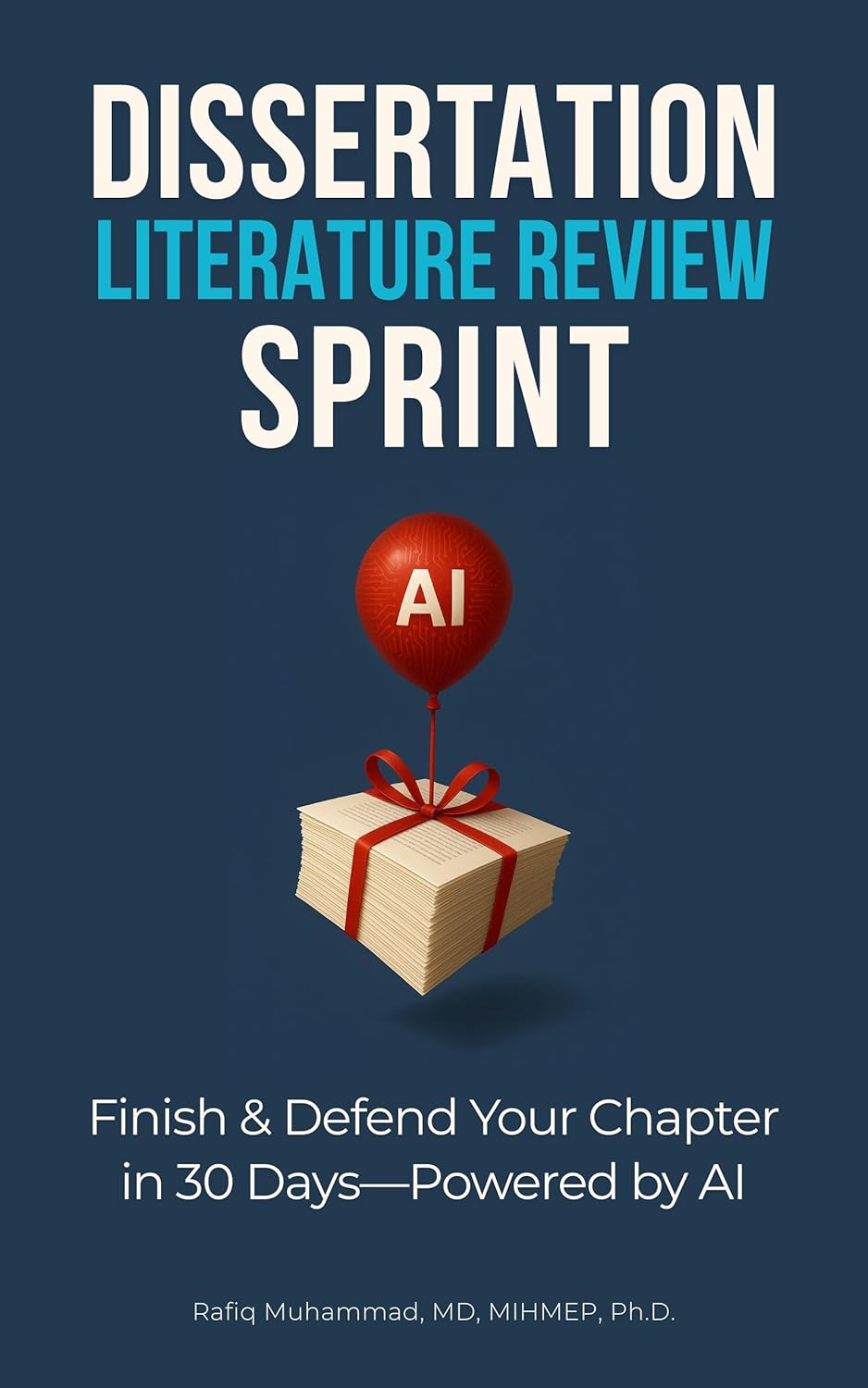
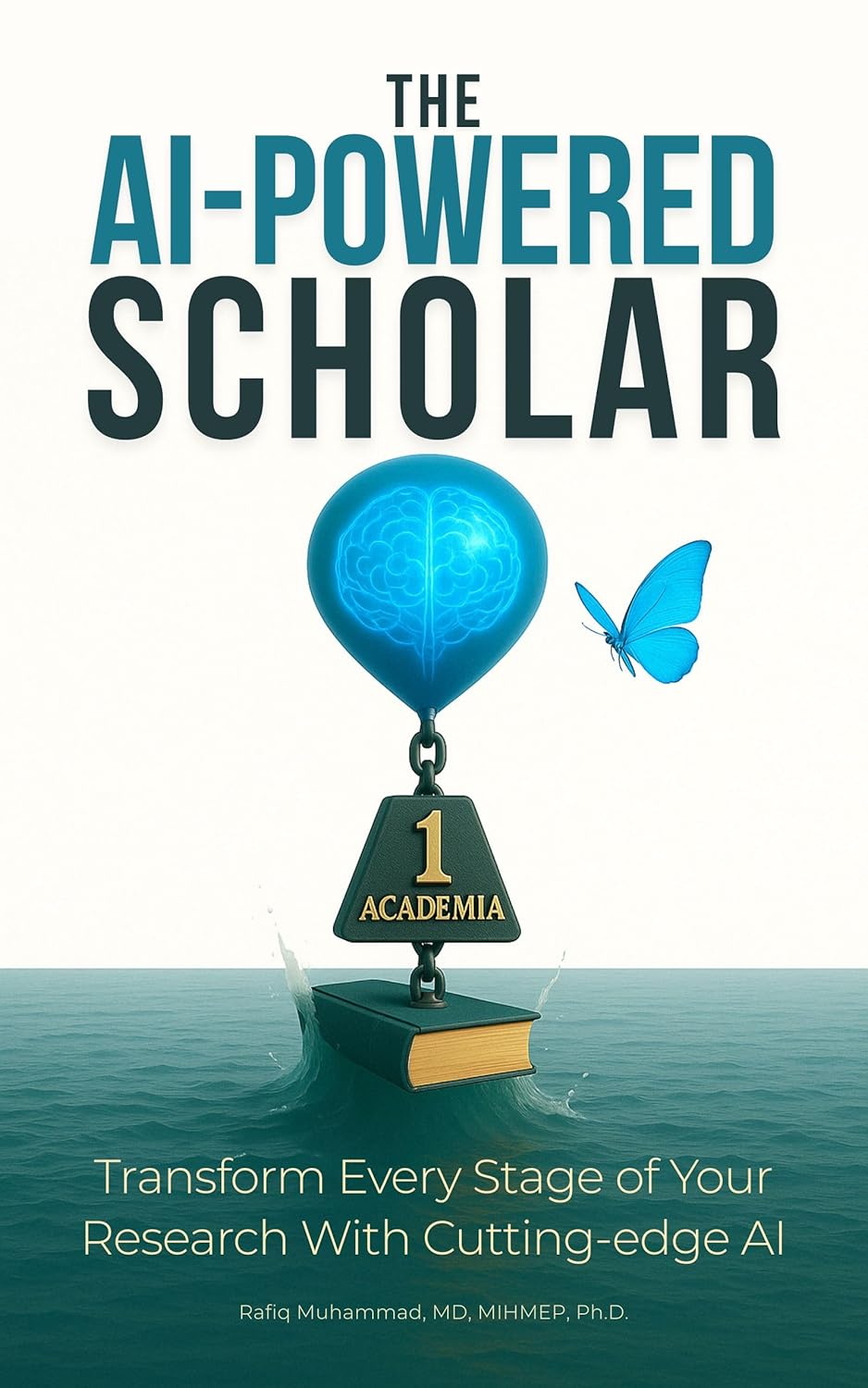
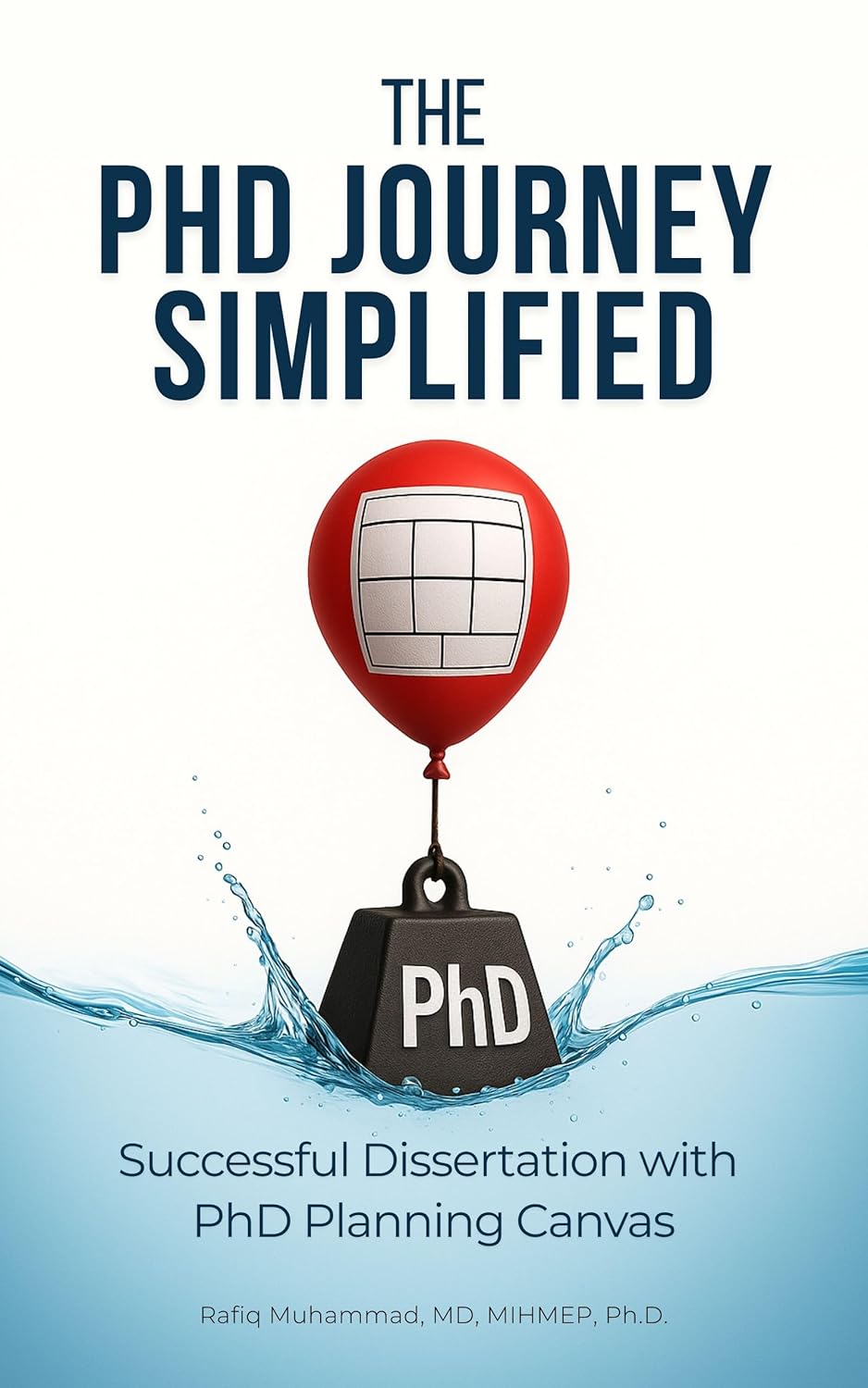
About the Mastering Research Series
A practical, step-by-step library that guides graduate students and early-career researchers across the full research lifecycle—from design to publication.
The Mastering Research series demystifies academic research through concise, actionable books. Each volume breaks down complex tasks—designing studies, analysing qualitative data, conducting literature reviews, writing scientific papers, crafting proposals, harnessing AI tools and managing PhD journeys—into clear steps, templates and checklists. Developed by Dr. Rafiq Muhammad, an experienced researcher with medical and data-science training, the series blends real-world examples, ethical guidelines and AI techniques to help scholars produce rigorous, reproducible research.
- Clear frameworks and checklists to remove guesswork
- AI-assisted workflows to save time without losing rigor
- Templates you can reuse for proposals, papers, and reviews









What Readers Say
“The 10-step lit review system saved my semester.”
“Finally published my first paper. The templates were gold.”
“Clear prompts + QualCoder workflow cut my coding time in half.”
FAQ — GradSummit - Mastering Research Series
What is the Mastering Research Series?
A 9-book toolkit that covers the complete research journey: research design, literature review, proposal writing, qualitative data analysis (ChatGPT + QualCoder), writing and publishing a scientific paper, PhD journey planning, and an AI-powered researcher’s playbook. It’s built for clarity, speed, and reproducible results.
Who are these books for?
Grad students and early-career researchers who want a practical path from research topic to publication. If you’re asking “how do I design a study, write a literature review fast, or publish a scientific paper?”, this series is for you.
How will these books help me write a dissertation literature review fast?
You’ll get a day-by-day plan (from Dissertation Literature Review Sprint), AI-assisted search and synthesis prompts, note-taking frameworks, and paragraph-level writing scaffolds to move from sources → themes → arguments → polished chapter.
Do you cover both qualitative and quantitative methods?
Yes. Research Design Simplified explains study types, variables, validity/reliability, and sampling; Qualitative Data Analysis with ChatGPT & QualCoder covers coding, codebooks, thematic analysis, and intercoder reliability; mixed-methods guidance ties both together.
What makes this series different from other “how-to” research books?
Action-first structure, ready-to-use templates, and GEO/SEO-style “answer first” explanations. You’ll see worked examples, model paragraphs, and publishing checklists that shorten the path to a peer-reviewed submission.
Will I learn how to publish in peer-reviewed journals?
Yes. Write and Publish a Scientific Paper gives you journal-fit criteria, section-by-section drafting formulas, response-to-reviewers scripts, and common-rejection fixes—so you can move from draft to submission with confidence.
Is the ChatGPT + QualCoder workflow beginner-friendly?
Absolutely. You’ll learn how to build a defensible codebook, run transparent AI-assisted coding, log decisions, and export artifacts for appendices—without losing methodological rigor.
Which disciplines are supported?
Health sciences, social sciences, education, business, and interdisciplinary fields. Principles are universal, with examples you can swap for your domain.
How long until I see results?
Most readers report momentum in 1–2 weeks: a structured outline, a working codebook, or a full literature-review draft. The sprint plans help you keep going day-by-day.
Are there ethical guidelines for using AI in academic work?
Yes. The series includes disclosure language, limits of use, verification steps, and integrity checklists so your work stays compliant with program and journal policies.
Do I need prior experience with AI tools?
No. Every AI workflow (e.g., ChatGPT + QualCoder, prompt design, validation steps) is explained step-by-step with examples and cautions for responsible use.
Can I use the templates for my thesis or paper?
Yes. All checklists, outlines, and writing templates are designed to be adapted to your university guidelines, discipline, and preferred reference style.
Do you offer checklists and one-page cheat sheets?
Yes—every title ends with quick-win checklists (e.g., proposal readiness, dataset hygiene, figure/table finalization, submission “go/no-go”).
Where can I buy the books?
They’re available on Amazon (Kindle and print). Links are provided on this site’s book pages.
